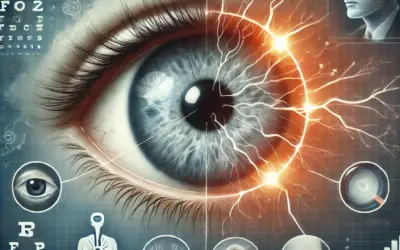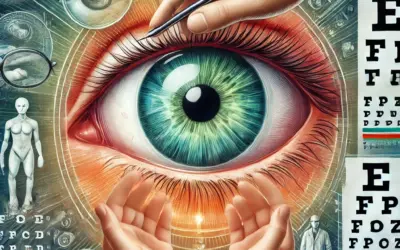Find an Opthalmologist
24 Hours a Day – 7 Days a Week – 365 Days a Year
On-Line & Face-to-Face Appointments – Book Now


Dr. Deborah Jarman
London, UK
Reviews – [ 08 ]

Dr. John Testman
London, UK
Reviews – [ 24 ]

Dr. Kate Parsons
London, UK
Reviews – [ 10 ]

Dr. Rozev Shelka
London, UK
Reviews – [ 12 ]

Dr. Rozev Shelka
London, UK
Reviews – [ 12 ]

View Ratiings & Rankings - Click Here

Sort by Availbility - Sort by Rating. - Sort by Location - Sort by Language - Sort by Name
< – 1 – 2 – 3 – 4 – 5 – 6 – >
Click HERE for full Clinician Directory
Click HERE for full Clinician Directory
< – 1 – 2 – 3 – 4 – 5 – 6 – >
Ophthalmology is the branch of medicine focused on the diagnosis, treatment, and prevention of eye diseases and disorders. Ophthalmologists are specialists who manage a wide range of conditions affecting vision, including cataracts, glaucoma, macular degeneration, diabetic retinopathy, and refractive errors like myopia and hyperopia. They perform eye exams, prescribe corrective lenses, and may perform surgeries such as LASIK or cataract removal. Ophthalmology also includes the care of the surrounding structures, such as the eyelids and orbit. This field plays a crucial role in preserving and improving vision, which is essential for overall well-being.
Ad Space – 1
Cataracts – Clouding of the eye’s natural lens, leading to blurred vision, glare sensitivity, and eventual vision loss if untreated.
Glaucoma – A group of eye conditions that damage the optic nerve, often due to high intraocular pressure, potentially causing irreversible vision loss.
Macular Degeneration – A progressive disease affecting the central retina (macula), leading to blurred or lost central vision, especially in older adults.
Diabetic Retinopathy – A complication of diabetes that damages the blood vessels in the retina, potentially causing vision loss or blindness.
Retinal Detachment – A medical emergency where the retina separates from the underlying tissue, leading to sudden vision changes and potential blindness if untreated.
Conjunctivitis (Pink Eye) – Inflammation of the conjunctiva, causing redness, itching, and discharge, often due to infection, allergies, or irritation.
Keratitis – Inflammation of the cornea, often caused by infections, injury, or prolonged contact lens use, leading to pain and vision problems.
Astigmatism – A refractive error caused by an irregularly shaped cornea or lens, resulting in blurred or distorted vision at all distances.
Strabismus – A condition where the eyes do not align properly, leading to crossed or misaligned eyes and potential vision impairment.
Amblyopia (Lazy Eye) – Reduced vision in one eye due to abnormal visual development in childhood, often linked to strabismus or unequal refractive errors.
Dry Eye Syndrome – A condition where the eyes do not produce enough tears or quality tears, causing irritation, burning, and discomfort.
Uveitis – Inflammation of the uvea (middle layer of the eye), which can cause pain, redness, blurred vision, and light sensitivity.
Corneal Ulcer – An open sore on the cornea, often caused by infections, trauma, or contact lens misuse, leading to pain and vision loss.
Retinitis Pigmentosa – A genetic disorder causing progressive degeneration of the retina, leading to night blindness and gradual peripheral vision loss.
Blepharitis – Chronic inflammation of the eyelids, leading to redness, swelling, itching, and crusting around the eyelashes.

ARTICLE
Glaucoma is often called the “silent thief of sight” because it typically causes no symptoms until significant vision loss has occurred. This group of eye conditions damages the optic nerve, the vital connection between the eye and the brain, often due to increased…

ARTICLE
Our eyes are often referred to as the “windows to the soul,” but they’re also windows to our overall health. Ophthalmology, the branch of medicine concerned with the diagnosis, treatment, and prevention of eye diseases, plays a critical role in preserving one of our…

VIDEO
Glaucoma is often called the “silent thief of sight” because it typically causes no symptoms until significant vision loss has occurred. This group of eye conditions damages the optic nerve, the vital connection between the eye and the brain, often due to increased…

VIDEO
Glaucoma is often called the “silent thief of sight” because it typically causes no symptoms until significant vision loss has occurred. This group of eye conditions damages the optic nerve, the vital connection between the eye and the brain, often due to increased…
< [ Previous ] – [ Next ] >
Ad Space – 2
GoMedic24 Newsletter Signup
Enter your details below to signup to our newsletter
Enter your title
Enter your first name
Enter your last name
Enter your email address
Confirm your email address
Click to Search
Ad Space – 3







